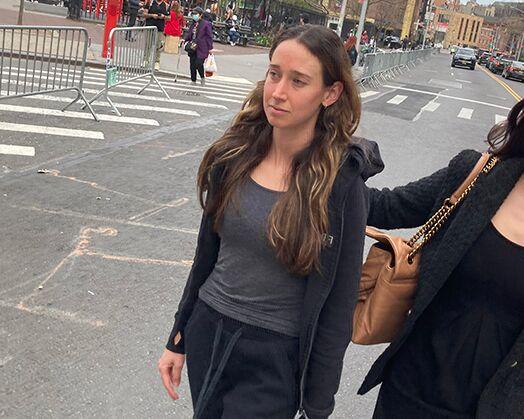JP Morgan ordered to pay Frank founder Javice’s lawyers while they sue her
By Jeff Feely
JPMorgan Chase & Co. should to pay founder Frank Charlie Javis’ defense in a lawsuit accusing her of defrauding the bank of her $175 million acquisition of her college loan planning website.
Delaware Chancery District Court Judge Kathleen St. J. McCormick concluded Monday that JPMorgan is legally obligated to cover Javis’ legal bills, rejecting the bank’s argument that its alleged fraud fell outside the scope of the 2021 merger agreement. The ruling likely also covers Javis’ defense to the criminal fraud charges that Federal prosecutors filed it over the disputed deal.
Javice and Amar turned around and sued JPMorgan for legal fees in Delaware Chancery Court, saying they were entitled to coverage under the bank’s policies since they became employees of JPMorgan after the acquisition. The bank’s lawyers countered that allegations of fraud negated its obligations.
The judge concluded that while the merger agreement included language addressing fraud, contract language did not create a “deductible” to deny Javice and Amar payment of legal fees.
“We continue to focus on the key issue of handling the fraud claims against Ms. Javis and Mr. Amar through legal action,” Pablo Rodriguez, a spokesperson for the bank, said in an emailed statement.
Read also
Federal prosecutors in Manhattan last month charged Javis with fraud. She was also sued by the Securities and Exchange Commission. She has not yet entered a court case in the criminal case, and her lawyers and plaintiffs last week requested that the case be adjourned for talks between the two sides.
The bank urged McCormick to deny Javis and Amar’s legal fee requests, pointing out that they had made millions of dollars selling Frank that they could use to cover their own defense costs.
McCormick’s ruling likely comes as a relief to Javis, who ran into financial trouble while dealing with JPMorgan fraud allegations.
The entrepreneur moved millions of dollars out of JPMorgan after the bank fired her and accused her of fraud, but then ended up embroiled in the collapse of Signature Bank. Government regulators seized that institution in March after a run on the bank threatened its future. The Federal Deposit Insurance Corporation stepped in to insure signature deposits.
Reserved accounts
Although she was able to move her money around before regulators placed Signature into receivership, federal prosecutors later seized her accounts and accused her of defrauding JPMorgan.
JPMorgan in Delaware suggested that court filings in Javis were attempting to hide assets in the Nevada shell companies it created. But she responded to the government confiscating her money which spoiled any such concerns.
If Javis is convicted of fraud charges or found liable in the JPMorgan lawsuit, Larry Hammermish, a retired University of Pennsylvania professor who taught corporate law in Delaware, said the bank could seek to recover any legal fees it paid her. These results may mean that she no longer means the standard to be compensated by her former employer.
In this case, she’ll have to pay the fee, “if she has the money, that is,” Hammermesh said.
The case is Javice v. JPMorgan Chase Bank NA, 2022-1179, Delaware Chancery Court (Wilmington).
